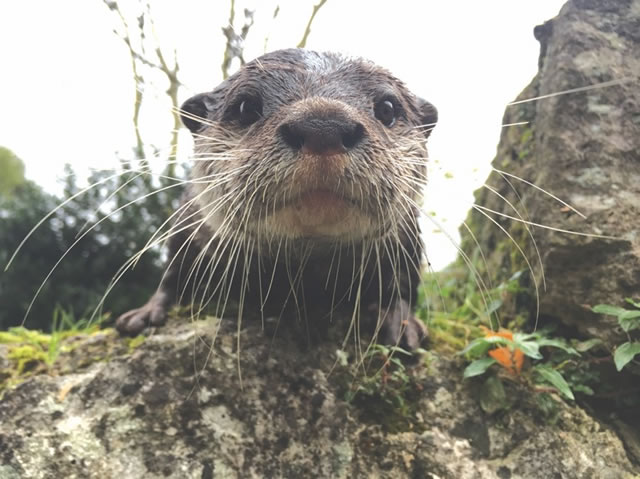Local Family Haven Seeks Funding
Battersea Park Children’s Zoo sets up Crowdfunder to help safeguard animals

Otters are missing their human visitors
Battersea Park Children’s Zoo in London is seeking donations to their Crowdfunder page to help safeguard their animal’s welfare and husbandry at this extraordinary time.
The zoo relies completely on visitor ticket sales and memberships to cover their overall running costs. Due to COVID-19 the zoo followed Government guidelines and closed to visitors on March 21st 2020. This coincided with the beginning of the zoo’s busiest season from Easter through to Autumn.
One Putney mum told this website: "Battersea Park Children’s Zoo is special to me, as it is to many other families, so when I saw they needed help I reached out and donated on their Crowdfunder page. The team are on skeleton staff currently ensuring the welfare of the animals, and having shut at what should be their busiest time, they are really feeling the strain.
The biggest thing I can say is legacy is so important, having communicated the Children’s zoo’s plight on various mum’s Facebook groups locally, I know this place means a lot to others too in the local community, plus who can resist a furry face?".
The zookeepers at Battersea Park Children’s Zoo are essential workers and are needed to uphold the high level of care given to their animals and their welfare. The committed animal keepers continue to work at the zoo everyday during the pandemic, ensuring the animals welfare is paramount. The team are going that extra mile to ensure the animals remain healthy and happy, although many of the animals do miss the visitors. The zoo’s otters for example wait at the front of their pool each morning at 10am, looking over the wall across the pathway to see if the visitors are coming in to see them.
Any donations would go towards maintaining the expected standard of animal welfare at the zoo and managing the associated running costs that come with the exotic species they house. Just £75 would buy enough insects to feed all of their monkeys and lemurs for one week. £150 would feed all of the animals and provide fresh bedding for one day. £500 would be wonderful and ensure a few days peace of mind during this uncertain time.
The zoos daily food costs for the 100+ animals (47 species) living at the zoo is approximately £115 a day. This includes all fresh vegetables, fruits, pellet feeds, meat and fish. The weekly cost of insects for the monkeys, meerkats, lemurs, coatis and birds is nearly £80.00 £400 a month is needed for hay, straw and bedding materials. Monthly staffing costs for their animal zookeeper team is £7,600 and on top of these other overheads including bills for water and specialist heating and UV lighting are incurred.
The zoo also runs a creative education programme complying with the National Curriculum and teaches interactive workshops based on conservation, adaptations, the food chain and camouflage. The education programme attracts schools from all over London and are usually fully booked each year, sometimes with up to 90 school children engaged in tours and workshops in a single day. Throughout school holidays there are organised craft and educational events for the young visitors. One of the busiest events is the annual hedgehog day where the staff encourage Londoners to help hedgehogs thrive as they're currently on the brink of extinction in the UK. Approximately 8,500 school children a year visit the zoo.
Following the Festival of Britain celebrations held in Battersea Park, in 1951, the forerunner of Battersea Park Children’s Zoo was born. Wandsworth Borough Council successfully ran the zoo until 2004 when the Heap family were chosen to take over the zoo. Carol and Roger Heap and their son Ed Heap (general manager) closed the petting zoo for six months, refitted and modernised it to bring it to current standards as an education and conservation facility. The zoo is now home to 47 species of mammals, birds and reptiles including a number of critically endangered species such as the cotton top tamarin, Bali starlings, Scottish wildcats and lemur.
The zoo actively participates in vital European breeding
programmes with other zoos to conserve species and educate their visitors as to why many species are disappearing from the wild. At the zoo European hedgehogs and Eurasian harvest mice are bred regularly and released into the wild as part of reintroduction programmes across the UK.
April 10, 2020
Related links
|